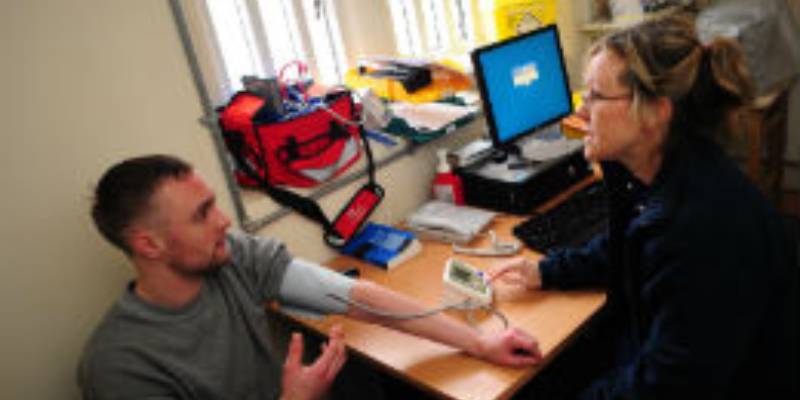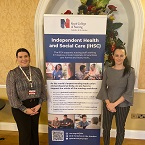
As two of the Lead Nurses for Independent Health and Social Care (IHSC) here at the RCN, we’re always on the lookout for new experiences and learning opportunities. Recently, we had the chance to visit a regional reception prison for a firsthand look at the daily lives of the nursing staff working there.
Beforehand, we were admittedly feeling a little apprehensive about visiting a prison for the first time. But upon arrival, we were reassured by the warm welcome and huge smile we received from the regional head of operations. After some thorough security checks, we met with the amazing multidisciplinary professionals working within the prison health care team.
They gave us an in-depth, albeit modest, overview of their daily practices, including the unique challenges they face and their forward-thinking, innovative solutions. One thing they were keen to emphasise was the importance of teamwork in such a challenging environment.
We then donned our walking boots and followed a patient’s journey from their arrival at the prison to their life on the wing. This further highlighted the complex challenges of prioritising care in prisons, and the incredible dedication of the nursing staff working there. Some of the challenges they spoke about were:
- High patient turnover: Reception prisons see a rapid turnover of patients, which can make it difficult for staff to provide the level and continuity of care that they wish to.
- Limited patient history: Many patients have little to no previous health care records, making it tricky for health care staff to get accurate medical histories.
- Noise and emotional strain: The prison environment can be noisy and emotionally draining. Even the smallest task in such a noisy environment takes concentration and focus.
- Heightened vigilance: Despite strict safety protocols, nursing staff must stay alert and often handle situations beyond what they would encounter in typical health care settings. This creates a fine balancing act between safety and care.
But despite these challenges, one of the things that struck us most from our day in the prison was the pride and satisfaction the nursing staff there showed in their roles.
Our perceptions of what it’s like to work in a prison are often shaped by things like TV shows. But by their very nature, these dramas and soaps don’t leave much space for showing the positives of this career path. The nursing staff we met explained many of the benefits, as they saw them, such as:
- Multidisciplinary team collaboration: Working closely with a diverse team not only enhances patient care but also aids professional development and innovative practice.
- Variety of health conditions: Nursing staff in prisons tackle a wide range of health issues, both chronic and acute, which keeps their work interesting and enriching. It also provides them with a multitude of transferable skills.
- Patient appreciation: Many patients have had limited access to health care before, and their gratitude (sometimes shown with cupcakes!) can be heartwarming and impactful.
- Demand and benefits: There's a high demand for prison nurses, with some employers offering NHS-equivalent terms and conditions, including opportunities for bank work.
Our visit to the prison was a real eye-opener, highlighting the indispensable and often underappreciated work of our prison nursing staff. Their ability to provide comprehensive care in such a challenging environment is truly inspiring.


 Share on LinkedIn
Share on LinkedIn




